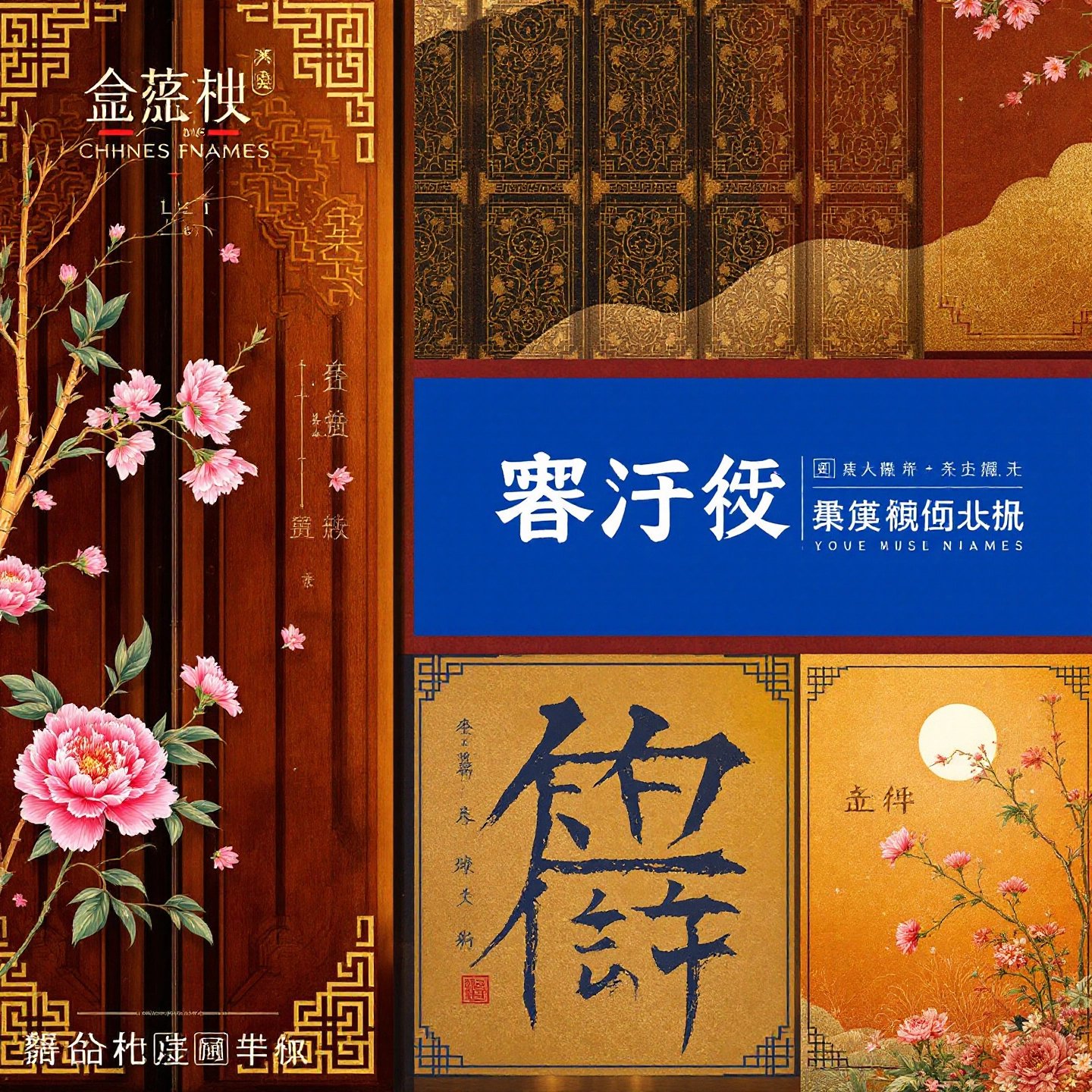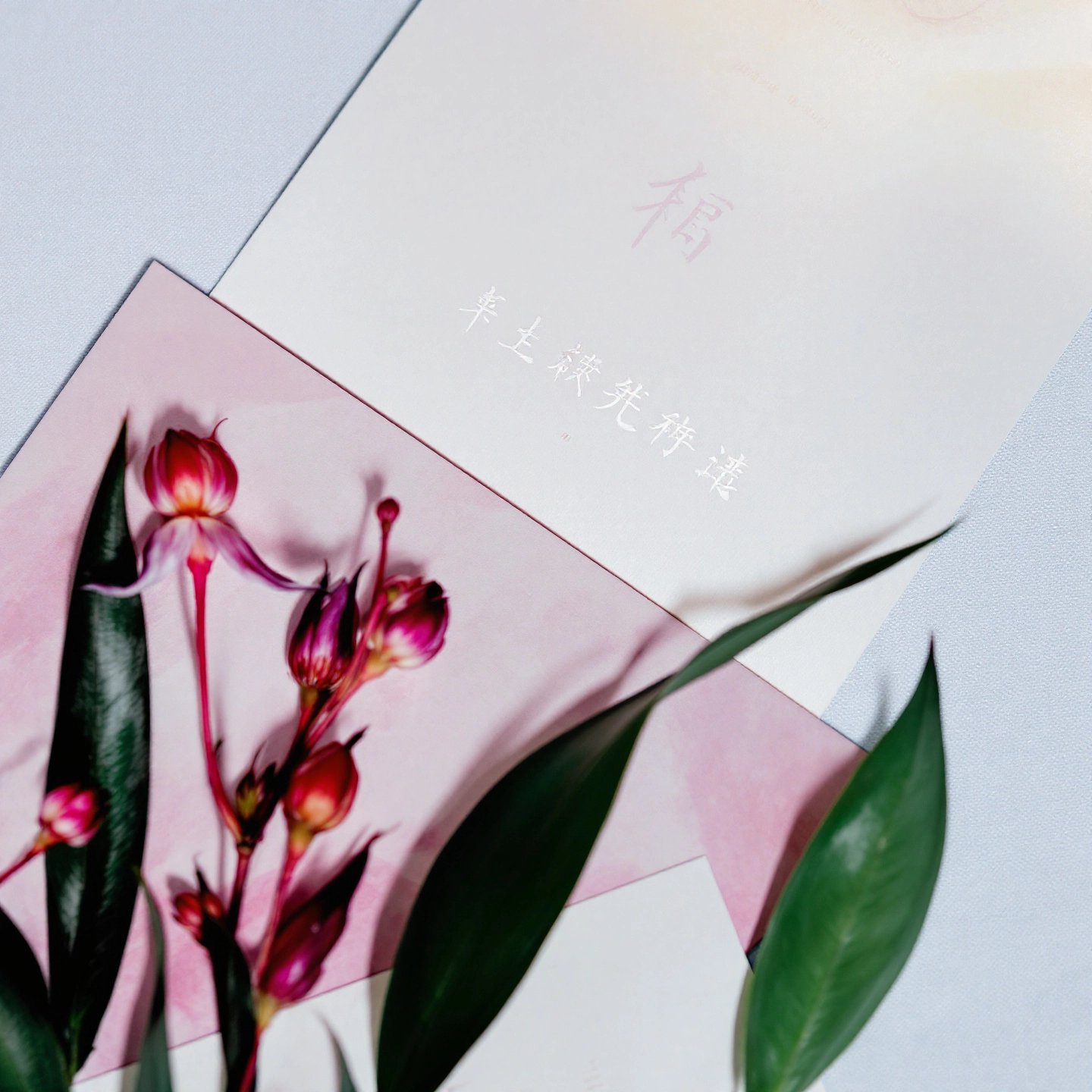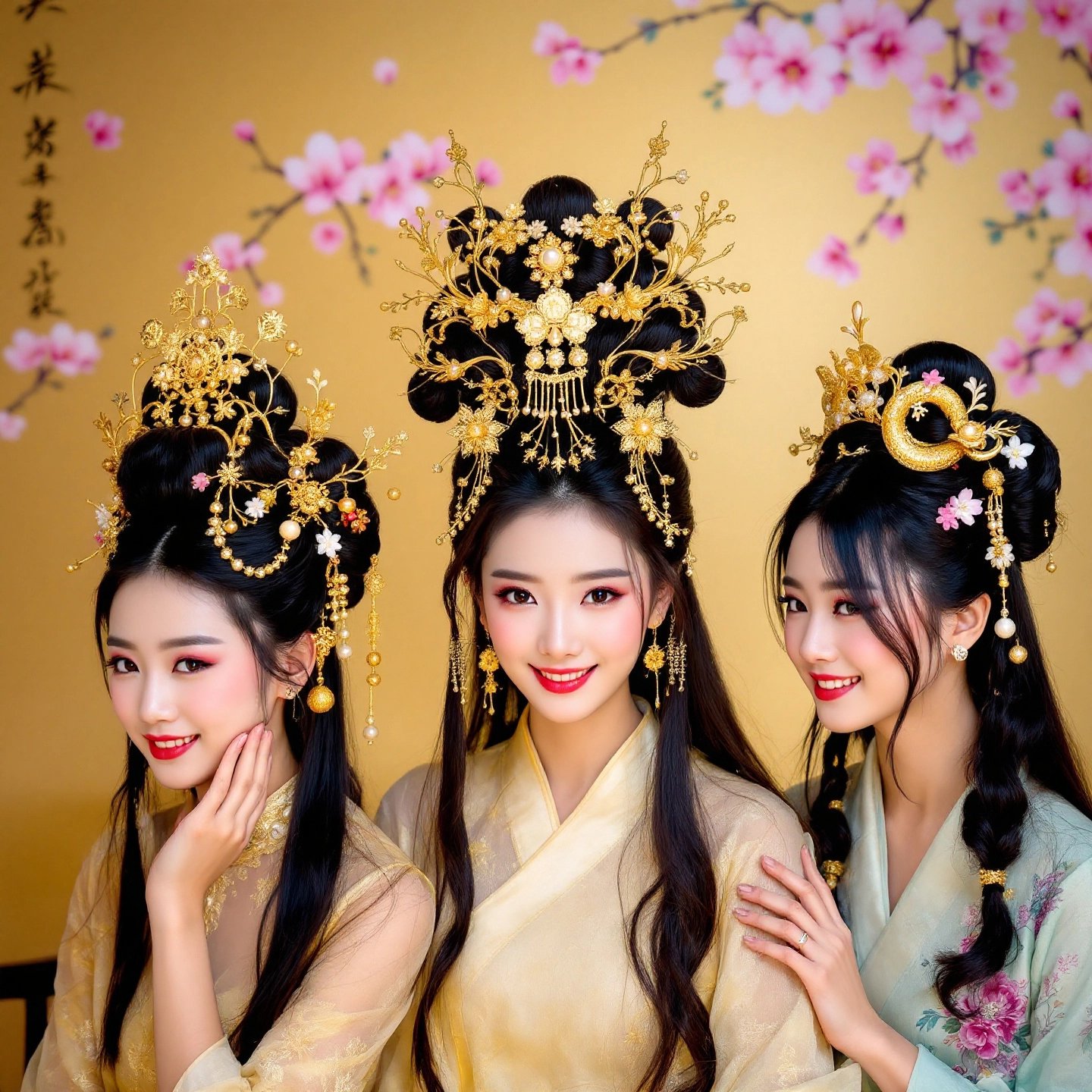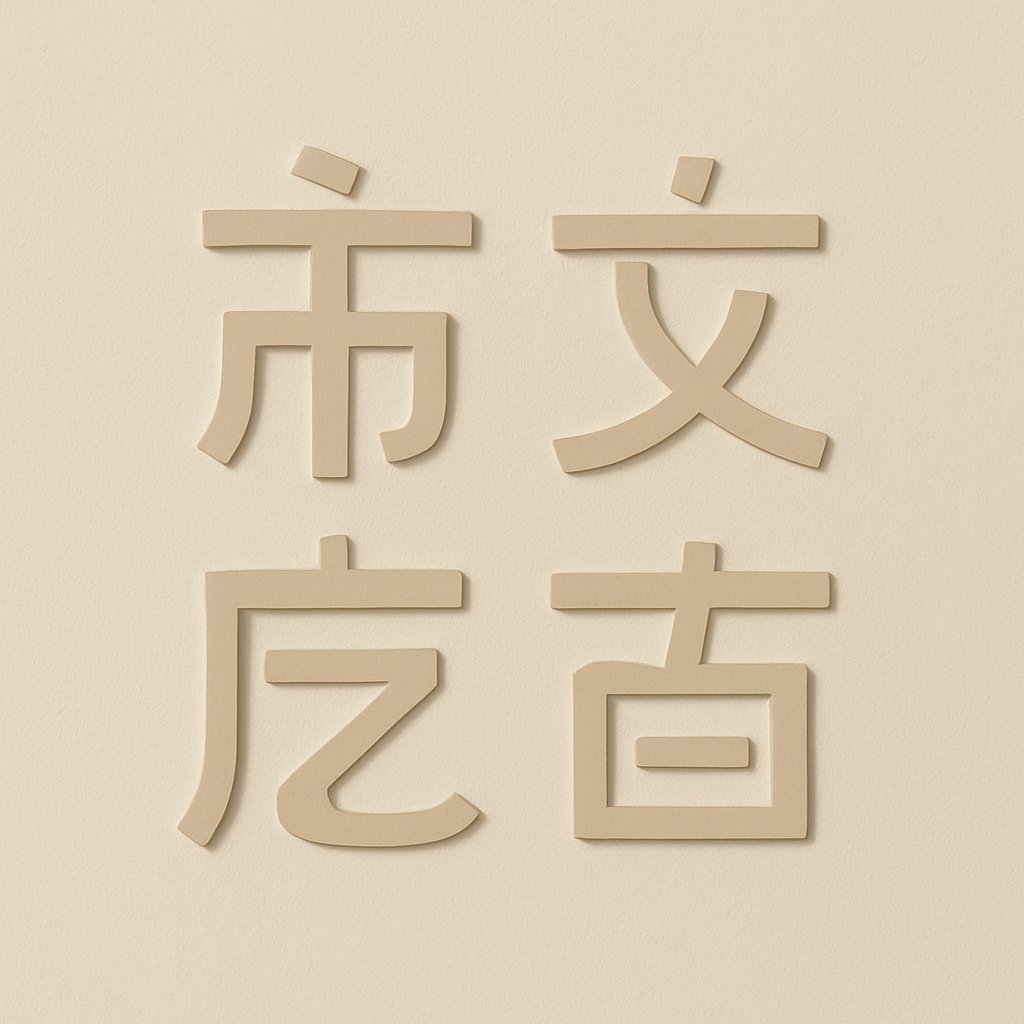Introduction to Chinese Female Names
Chinese female names are not just identifiers; they are a reflection of cultural heritage, familial aspirations, and societal values. Unlike Western names, which are often chosen for their phonetic appeal, Chinese names are steeped in meaning and tradition. Each name is carefully selected, often comprising two or three characters, each carrying its own significance. This practice highlights the importance of linguistic and symbolic elements that define a person's identity within Chinese culture.
In Chinese society, names are more than mere labels. They encapsulate hopes and dreams that parents have for their children, often reflecting virtues such as beauty, intelligence, and prosperity. For instance, characters like 美 (měi) for beauty or 智 (zhì) for wisdom are commonly used in Chinese female names. This contrasts with Western conventions, where names might be chosen based on family tradition or personal preference without a deep-rooted cultural significance.
The structure of Chinese names typically follows a pattern where the family name precedes the given name, a practice that underscores the importance of family lineage and heritage. While Western names often separate first and last names, Chinese names are written as a unified entity, emphasizing the interconnectedness of family and personal identity.
This article will delve into the fascinating world of Chinese female names, exploring their historical roots, cultural significance, and modern adaptations. By examining both traditional and contemporary naming practices, we aim to provide a comprehensive understanding of how these names reflect the evolving tapestry of Chinese society. From the influence of Confucian philosophy to the impact of globalization, we will uncover the timeless treasures embedded in the art of naming within Chinese culture.

Understanding the Cultural Roots of Chinese Female Names
Have you ever wondered how a name could shape one's destiny? In Chinese culture, this belief is deeply ingrained, as names are not merely identifiers but reflections of cultural values and historical influences. The evolution of female Chinese names is a fascinating journey through time, revealing the intricacies of Chinese naming customs that have been shaped by philosophy, tradition, and regional dialects.
Historical Influences on Naming
Chinese naming customs have their roots in ancient philosophies and texts, with Confucianism playing a pivotal role. Confucian philosophy emphasizes the importance of family and societal harmony, which is mirrored in the structure and meaning of names. For instance, the family name precedes the given name, highlighting the significance of familial lineage and respect for ancestors.
- Confucian Philosophy: Names often reflect virtues such as loyalty, filial piety, and harmony, which are central to Confucian teachings.
- Dynastic Customs: During various dynasties, names were chosen to reflect the era's prevailing cultural and political ethos. For example, names during the Tang Dynasty might emphasize poetry and elegance, while those in the Ming Dynasty could reflect strength and resilience.
- Regional Dialects: Different regions in China have unique dialects and cultural influences, which affect the pronunciation and choice of characters in names. This regional diversity adds layers of meaning and variation to Chinese names.
Cultural Elements and Symbolism
Names are often selected based on their symbolic meanings, with each character carrying a specific cultural or spiritual significance. For example, characters representing beauty, grace, and virtue are common in female Chinese names, reflecting parental hopes and aspirations.
- Poetic Inspirations: Many names are derived from classical poetry and literature, such as "The Book of Songs," which provides a rich source of elegant and meaningful characters.
- Five Elements Theory: Names may also be chosen based on the Five Elements (wood, fire, earth, metal, water) to achieve balance and harmony in a child's life.
- Astrological Considerations: Astrologers might recommend names based on the child's birth date and time to align with their astrological chart.
Through these cultural lenses, female Chinese names serve as a bridge between the past and present, carrying forward traditions while adapting to modern influences. As we continue our exploration, you'll notice how these names not only preserve cultural heritage but also adapt to the evolving tapestry of Chinese society.
Exploring Traditional and Modern Naming Practices
Imagine a world where names are more than just identifiers; they are narratives that tell stories of cultural evolution and societal shifts. This is precisely the case with traditional Chinese names female and their modern counterparts. The journey from ancient to contemporary naming practices in China is a fascinating reflection of cultural continuity and adaptation.
Traditional Naming Practices
In traditional Chinese society, names were meticulously chosen to reflect virtues and aspirations. Names like 美丽 (Měilì), meaning 'beautiful,' and 智慧 (Zhìhuì), meaning 'wisdom,' were common, embodying parental hopes for their daughters' futures. These names were often inspired by classical literature and philosophical texts, ensuring that each name was not only aesthetically pleasing but also rich in cultural significance.
Traditional names were also deeply influenced by the Five Elements theory and astrological considerations, aimed at bringing balance and harmony to the child's life. Parents would consult fortune-tellers to select names that aligned with the child's birth chart, ensuring a prosperous future.
Modern Naming Trends
As China has modernized, so too have its naming conventions. The influence of Western culture and the globalized world has introduced new trends in naming practices. Today, many parents opt for names that are easier to pronounce in both Chinese and English, reflecting a desire for their children to thrive in an international environment. Names like 安娜 (Ānnà) and 艾米 (Àimǐ), which resemble 'Anna' and 'Amy,' are examples of this trend.
Moreover, the rise of single-character names is a notable trend in contemporary China. These names are concise and modern, often chosen for their simplicity and elegance. For instance, names like 玲 (Líng) and 静 (Jìng) have gained popularity, reflecting a shift towards minimalism.
Interestingly, some traditional names have remained popular, making it into the top 100 popular Chinese female names due to their timeless appeal. Names like 小花 (Xiǎohuā), meaning 'little flower,' continue to resonate with modern parents who wish to preserve cultural heritage while embracing contemporary influences.
As we delve deeper into the world of Chinese female names, you'll see how these practices not only preserve cultural identity but also adapt to the ever-changing landscape of society. This seamless blend of tradition and modernity ensures that Chinese names remain a vibrant and integral part of cultural expression.

Symbolic Meanings Behind Character Selection
When choosing Chinese female names, the selection of characters is a deeply thoughtful process, often reflecting the aspirations and values that parents hold for their children. Each character carries profound meanings, often tied to virtues, natural elements, or auspicious qualities. This practice not only personalizes a name but also embeds it with a cultural narrative.
Core Virtues in Character Selection
Chinese names frequently incorporate characters that symbolize virtues and desirable traits. For instance, characters like 美 (měi) meaning 'beauty' and 智 (zhì) meaning 'wisdom' are common choices, reflecting parental hopes for their daughters to embody these qualities. Similarly, characters such as 静 (jìng), which means 'quiet' or 'peaceful,' are chosen to inspire tranquility and calmness in one's life.
Common Characters and Their Meanings
Many female Chinese names and meanings are derived from characters with specific symbolic values. Here are some frequently used characters and their interpretations:
- 爱 (ài): Meaning 'love,' this character embodies affection and warmth.
- 芳 (fāng): Translates to 'fragrance,' often used to denote beauty and elegance.
- 静 (jìng): Signifying 'calm' or 'quiet,' it reflects a serene and peaceful demeanor.
- 丽 (lì): Meaning 'pretty' or 'beautiful,' it is a popular choice for its aesthetic appeal.
- 慧 (huì): Conveys 'wisdom,' symbolizing intelligence and insight.
- 梅 (méi): Refers to 'plum,' a symbol of resilience and perseverance.
These characters are not selected arbitrarily; they are chosen with the intention of bestowing positive attributes and future success upon the child. For example, the character 梅 (méi), representing the plum blossom, is admired for blooming in winter, symbolizing resilience and hope.
Through these symbolic meanings, Chinese female names serve as a bridge connecting cultural heritage with personal identity. As we continue exploring Chinese naming practices, you'll discover how these characters not only reflect individual aspirations but also the broader cultural values that have shaped them over centuries.
How Surnames Influence Female Names in China
In the intricate tapestry of Chinese naming conventions, the interplay between Chinese female names and surnames is a fascinating aspect that reflects deep-rooted cultural values and family heritage. Unlike Western names, where the given name often takes precedence, the family name in Chinese culture is of paramount importance, symbolizing lineage and ancestral pride.
Understanding the Role of Surnames
The family name, or surname, always precedes the given name in Chinese naming conventions, highlighting the collective over the individual. This practice underscores the Confucian emphasis on family and societal harmony. For example, in a name like Li Mei (李美), 'Li' is the surname, representing the family, while 'Mei' is the given name, often chosen for its personal significance or desirable traits.
Most Chinese surnames are monosyllabic and have a history that often dates back centuries. The top three surnames—Li (李), Wang (王), and Zhang (张)—are shared by millions, illustrating the limited pool of surnames compared to the vast population. This limited variety often results in the need for distinctive given names to ensure individual identity within the family and society.
Regional Variations and Cultural Significance
Regional differences also play a significant role in the pronunciation and spelling of surnames. For instance, the surname Wang (王) is pronounced 'Wong' in Cantonese regions, while in Hokkien, it becomes 'Ong'. These variations can indicate a person's ancestral origins and are a testament to the linguistic diversity within China.
In addition to regional pronunciation differences, some areas have unique surnames or variations that are less common elsewhere. For example, the surname Chen (陈) is the most prevalent in Taiwan, reflecting both historical migration patterns and cultural influences.
Influence on Given Names
The choice of given names often complements the family surname, creating a harmonious and meaningful combination. Parents might select characters that not only sound pleasing with the surname but also convey aspirations for their child's future. For instance, a name like Zhang Jing (张静) combines a common surname with a given name meaning 'quiet' or 'peaceful,' reflecting a desired trait.
In conclusion, the relationship between Chinese female first names and surnames is a rich narrative of cultural heritage and personal identity. As we delve deeper into the nuances of Chinese naming practices, we uncover how these names serve as a bridge between tradition and individuality, encapsulating the essence of Chinese cultural values.

Examples of Chinese Female Names
When it comes to naming their daughters, Chinese parents often choose names that reflect beauty, grace, and virtue. These names are not only a reflection of cultural values but also carry personal significance and aspirations. Let's explore some cute female Chinese names and famous female Chinese names that have captured hearts for generations.
Charming and Cute Names
Many Chinese female names are chosen for their soft and gentle sounds, often incorporating characters that evoke sweetness and innocence. Here are a few charming examples:
- 小花 (Xiǎohuā): Meaning 'Little Flower,' this name is both endearing and evocative of natural beauty.
- 甜甜 (Tiántián): Translates to 'Sweet,' often used to describe someone with a delightful and lovable personality.
- 蓝蓝 (Lánlán): Meaning 'Blue,' this name conveys a sense of calmness and serenity.
- 娃娃 (Wáwá): Meaning 'Doll' or 'Baby,' emphasizing youthfulness and cuteness.
Famous and Elegant Names
Some names have gained fame due to their association with well-known figures or their timeless elegance. These names often reflect cultural heritage and societal admiration:
- 美娜 (Měi Nà): Meaning 'Beautiful and Elegant,' a name that embodies grace and sophistication.
- 雅丽 (Yǎ Lì): Translates to 'Elegant and Beautiful,' often chosen for its refined and poised imagery.
- 静 (Jìng): Meaning 'Quiet' or 'Peaceful,' a popular choice for its serene connotation.
- 玲 (Líng): Signifying 'Jade,' this name is associated with preciousness and purity.
Discovering Names with Generators
For those seeking unique or creative names, name generator tools can be a valuable resource. These tools offer a wide range of options, allowing you to explore various combinations and meanings effortlessly. Whether you're naming a real child or a fictional character, these generators provide inspiration and ensure cultural accuracy.
By utilizing these tools, you can discover names that resonate with personal or cultural significance, ensuring that each name chosen tells a meaningful story. As we continue our exploration of Chinese female names, you'll find that these names are not just identifiers, but narratives that capture the essence of cultural heritage and individual identity.
Harnessing Online Name Generators for Creative Inspiration
Have you ever struggled to find the perfect name that captures both cultural heritage and personal identity? The advent of Chinese name generator female tools has revolutionized the way we approach naming, offering a blend of tradition and modernity. These tools are invaluable for discovering common Chinese female names that resonate with cultural significance and personal meaning.
Benefits of Using a Chinese Name Generator
Online name generators, such as the Chinese Name Generator, provide a user-friendly platform to explore a vast array of names. They utilize advanced AI algorithms to ensure that each name is culturally appropriate and meaningful. Here are some benefits of using these tools:
- Cultural Intelligence: By understanding traditional Chinese naming conventions, these generators ensure authenticity and respect for cultural nuances.
- Personalized Suggestions: The AI tailors names based on user preferences, ensuring a personal connection.
- Ease of Use: With intuitive interfaces, users can effortlessly navigate through options to find names that suit their needs.
- Comprehensive Analysis: Detailed explanations of each name's meaning and pronunciation help users make informed choices.
Best Practices for Generating Names
When using a name generator, it's essential to approach the process with cultural sensitivity and accuracy. Here are some best practices:
- Consider the cultural and historical significance of names to avoid unintended meanings.
- Use generators that offer explanations of character meanings and pronunciation guides.
- Explore multiple options to ensure the chosen name aligns with personal and cultural values.
Pros and Cons of Name Generators
Pros
- Quick and easy access to a wide variety of names.
- Helps in avoiding common naming pitfalls.
- Provides inspiration for both real and fictional characters.
Cons
- May lack the personal touch of a name chosen through traditional methods.
- Some tools might offer superficial suggestions without deep cultural insights.
In conclusion, while name generators offer a convenient solution for finding Chinese female names, it's crucial to use them thoughtfully. By combining these tools with an understanding of cultural contexts, you can find names that honor tradition while embracing modernity. For further exploration of Chinese names, visit the CNG blog post, which provides a comprehensive guide to authentic and meaningful naming practices.
Historical Gems from the 1960s
The 1960s were a transformative era for China, marked by significant social and political shifts that left an indelible mark on naming conventions. During this period, old Chinese female names 1960 reflected the prevailing ideologies and cultural sentiments. Names from this era often embodied revolutionary zeal and a commitment to collective ideals, mirroring the broader societal changes underway.
Names Reflecting Revolutionary Values
Names like 红 (Hóng) and 兵 (Bīng) became popular, drawing inspiration from the Red Guards during the Cultural Revolution. These names symbolized the revolutionary spirit and were emblematic of the era's ideological fervor. Similarly, the name 文革 (Wéngé), a direct reference to the Cultural Revolution, was also widely adopted.
These names were not just personal identifiers but also statements of ideological alignment and national pride. They served as reminders of the collective struggle and aspirations of the time, showcasing how deeply intertwined personal identities were with the political landscape.
Influence of Social Environment
The social environment of the 1960s, characterized by a strong emphasis on communal values and patriotism, significantly influenced the popularity of certain names. The emphasis on collective identity over individualism was reflected in the names chosen by parents, who often sought to instill a sense of duty and loyalty to the nation in their children.
| Chinese Name | Characters | English Translation |
|---|---|---|
| 红 | Hóng | Red |
| 兵 | Bīng | Soldier |
| 文革 | Wéngé | Cultural Revolution |
These names, while reflective of a specific historical context, continue to resonate with those who lived through the era and serve as cultural markers of a transformative period in Chinese history. As we explore the evolution of popular Chinese names female, it's essential to recognize how these historical gems contributed to the rich tapestry of Chinese naming traditions.
As we transition to the next section, we'll delve into how traditional Chinese hairstyles complement the beauty of these names, further illustrating the cultural significance embedded in the art of naming.

Integrating Names with Traditional Hairstyles
Imagine walking through the vibrant streets of ancient China, where every woman’s hairstyle tells a story as rich as her name. The connection between traditional Chinese hairstyles female and beautiful Chinese female names is a fascinating tapestry woven with cultural significance and aesthetic beauty. These hairstyles are not just about appearance; they are emblematic of the virtues and aspirations reflected in the names themselves.
Historical Significance of Hairstyles
Throughout Chinese history, hairstyles have played a crucial role in defining a woman's identity and social status. During the Qin and Han dynasties, elaborate hairstyles like the Lingyun Ji and Chuiyun Ji were popular among noblewomen, symbolizing elegance and noble status. These styles were often complemented by names that reflected beauty and grace, such as 美丽 (Měilì) or 雅丽 (Yǎlì), which mean 'beautiful' and 'elegant' respectively.
Hairstyles like the Jiuhuan Xian Ji, with its ornate rings adorned with pearls and gems, were considered noble and were often worn by women with names that denoted high status and refined beauty. This interplay between name and hairstyle showcased a woman's grace and the cultural values of the time.
Fashion Trends and Cultural Events
In many cultural events, hairstyles served as a visual representation of the virtues and qualities embodied in a woman's name. For instance, the Fanwan Ji, popular among court dancers, mirrored the lively and spirited nature often found in names like 芳 (Fāng), meaning 'fragrance' or 'elegance.' Similarly, the Shuangya Ji, with its simple and youthful appearance, was often worn by young girls whose names emphasized innocence and purity, such as 小花 (Xiǎohuā), meaning 'little flower.'
The choice of hairstyle was often influenced by the same cultural and philosophical considerations that guided the selection of names. The Five Elements theory and astrological beliefs played a role in both, ensuring harmony and balance in a woman's life and appearance.
Modern Reflections
Even today, the legacy of these traditional hairstyles continues to influence modern fashion and naming practices. While contemporary hairstyles may be simpler, the cultural significance remains deeply embedded. Modern Chinese women often choose names that reflect both traditional values and contemporary aspirations, creating a harmonious blend of past and present.
As we delve deeper into the world of Chinese female names, it becomes clear that the beauty of these names is not just in their sound or meaning but in how they are complemented by cultural expressions like traditional hairstyles. Together, they create a holistic representation of identity and heritage, capturing the essence of Chinese cultural values.
Conclusion
Understanding Chinese female names offers a window into the rich tapestry of Chinese culture, where each name carries not just personal identity but also a profound cultural narrative. These names are deeply rooted in history, reflecting traditional values while adapting to modern trends. As we've explored, the evolution from ancient naming conventions to contemporary practices illustrates a dynamic interplay between heritage and modernity.
Names in Chinese culture are more than just labels; they are imbued with meaning, reflecting parental hopes, cultural virtues, and societal values. The choice of characters in a name can symbolize beauty, wisdom, and prosperity, while also conveying familial lineage and aspirations. This cultural depth is what makes Chinese names for girls so unique and significant.
For those interested in delving deeper into this fascinating subject, exploring the historical and cultural contexts of these names can provide valuable insights. Whether you're naming a child, creating characters for a story, or simply curious about cultural traditions, understanding the nuances of Chinese names can enrich your appreciation of this ancient culture.
To further explore the world of Chinese names for girls, consider utilizing resources like the CNG blog post. This comprehensive guide provides AI-assisted name suggestions and cultural insights, helping you discover names that resonate both within Chinese cultural contexts and globally. By combining historical understanding with modern tools, you can find names that honor tradition while embracing the future.
In conclusion, the journey through Chinese female names reveals a timeless treasure trove of cultural heritage and personal identity. As you continue to explore this intriguing subject, remember that each name is a story waiting to be told, a bridge between the past and the present, and a testament to the enduring legacy of Chinese culture.
FAQs about Chinese Female Names
1. What are some popular Chinese girl names?
Popular Chinese girl names often reflect beauty and virtue, such as Mei (美, meaning 'beauty') and Jing (静, meaning 'calm'). These names are chosen for their cultural significance and aesthetic appeal.
2. What are the prettiest Chinese names?
Some of the prettiest Chinese names include Lili, meaning 'beauty and elegance,' and Hua, symbolizing 'splendor.' These names are cherished for their poetic and cultural richness.
3. What is a Chinese lucky name for a girl?
Lucky Chinese names often include characters like Jiayi (佳怡, meaning 'good and pleasant') and Xiang (祥, meaning 'good omen'), believed to bring fortune and happiness.
4. How do Chinese surnames influence female names?
Chinese surnames precede given names, emphasizing family heritage. The combination of surname and given name is carefully chosen to create a harmonious and meaningful identity.
5. How can a Chinese name generator help in choosing names?
A Chinese name generator provides culturally accurate names, offering insights into meanings and pronunciations. It helps in finding names that are both traditional and globally adaptable.



